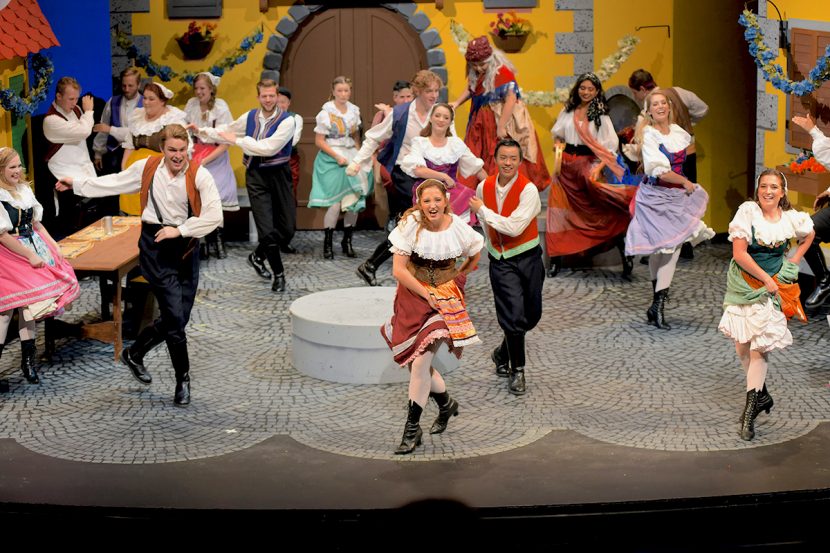You were the lead or member of the cast in your school musical. Now you’re thinking you might like to major in musical theatre to keep that level of excitement alive all four years of college and beyond.
Majoring in musical theatre is an extremely demanding path requiring high-level training in voice, acting, movement, and dance. It also requires business savvy, resilience, patience, and self-confidence.
Not everyone who achieves success in musical theatre has majored in it, but getting a degree in it should provide you with the skills you’ll need to move forward in this field.
Guidance for choosing a school
- Find a musical theatre program that fits who you are and what you want to do.
- Choose a school where teachers not only have experience in musical theatre but also continue to be directly involved in it. Teachers who are open and candid about your proficiency are more likely to help you gain a chance at success in this highly competitive field.
- Find teachers who understand what is healthy and safe for your voice and for your body.
- Look for schools that help bring their advanced students to the attention of musical theatre scouts through showcases and other opportunities.
- Consider the range of career paths associated with musical theatre, aside from lead and chorus roles. At some schools, you’ll find training offered in non-performance areas such as lighting, choreography, stage management, theatrical makeup artistry, and costume design. These are all necessary aspects of any production.
- If you apply to a program that does not offer musical theatre, you can still enter this field with a strong background as a voice, dance or theatre major although you may not get the training in the triple threat that’s needed for lead roles. Note that most non-musical theatre voice departments train students in classical voice.
- The business side of musical theatre includes learning how to market yourself as a “brand” and requires that you have a professional résumé, a website and up-to-date headshots in the most popular style of the moment. Musical Theatre programs should include this as part of your education.
- Look for schools where you’ll find mentors who you’ll click with and who will help you strengthen your proficiencies in voice, acting, and dance. They should also be able to assist you in learning the ins and outs of how to interview and audition. Note that mentors want to work with those who have already set clear goals for themselves instead of taking that task on for you.
Benefits of summer musical theatre programs
If you’re thinking about majoring in musical theatre, take a summer music program focusing on musical theatre before your senior year. You’ll strengthen your skills, increase your self-confidence, meet your competition, learn more about your musical theatre “type,” and gain greater understanding about the world of musical theatre.
You will find yourself rehearsing and training beyond anything you’ve done so far. This will help you figure out whether you can really handle what it takes to survive and flourish in this field. As musical theatre teachers and coaches will tell you, it’s far less expensive to attend a summer music program and find out if this is really the world you want to be a part of before you start applying to schools and taking on the expense of college. You’ll be able to ask yourself: “Do I love this enough to be exhausted after 18 hours of work each day, and still want to wake up the next day and do it all over again?”
Photo credit: Arizona State University School of Music



Leave a Reply